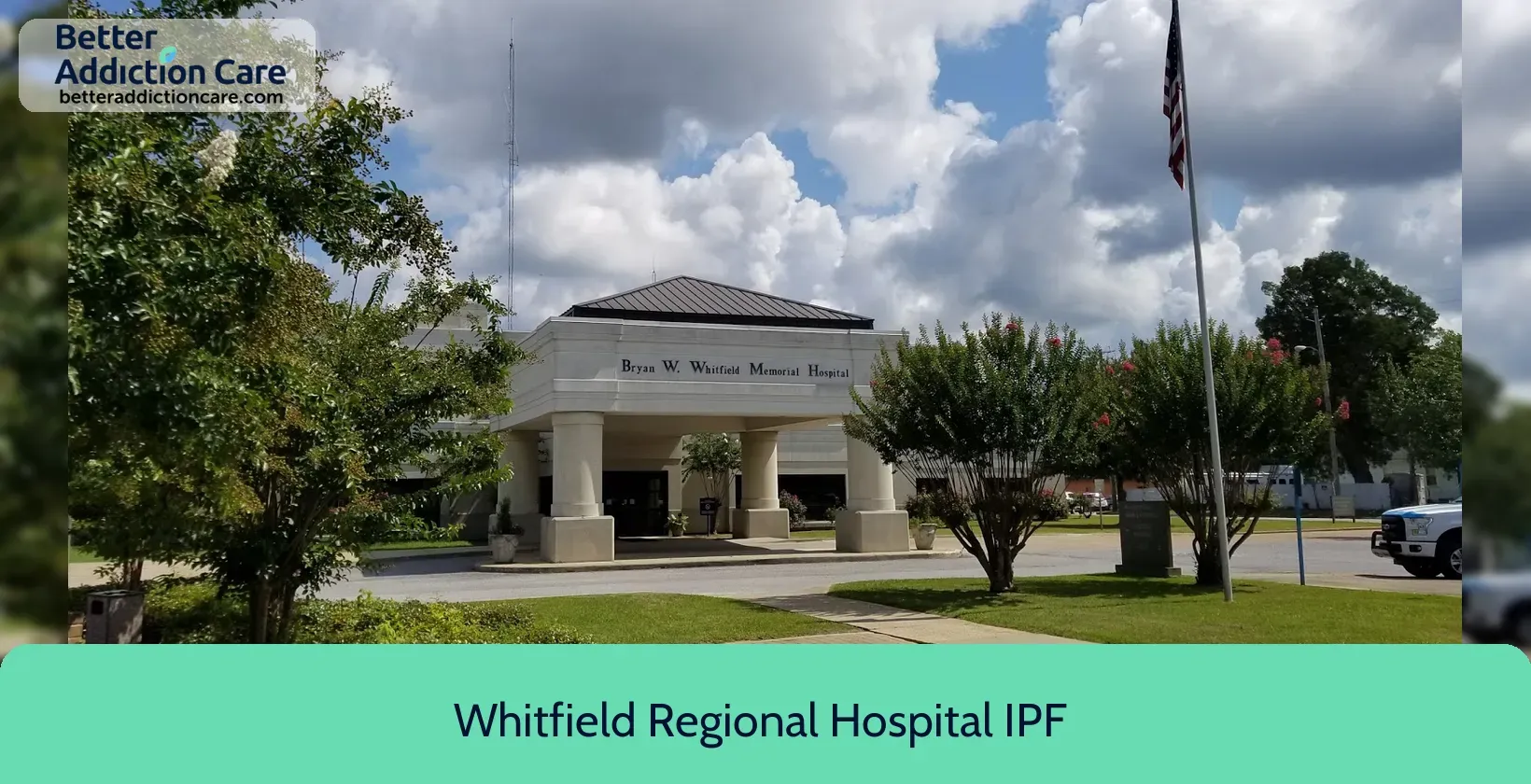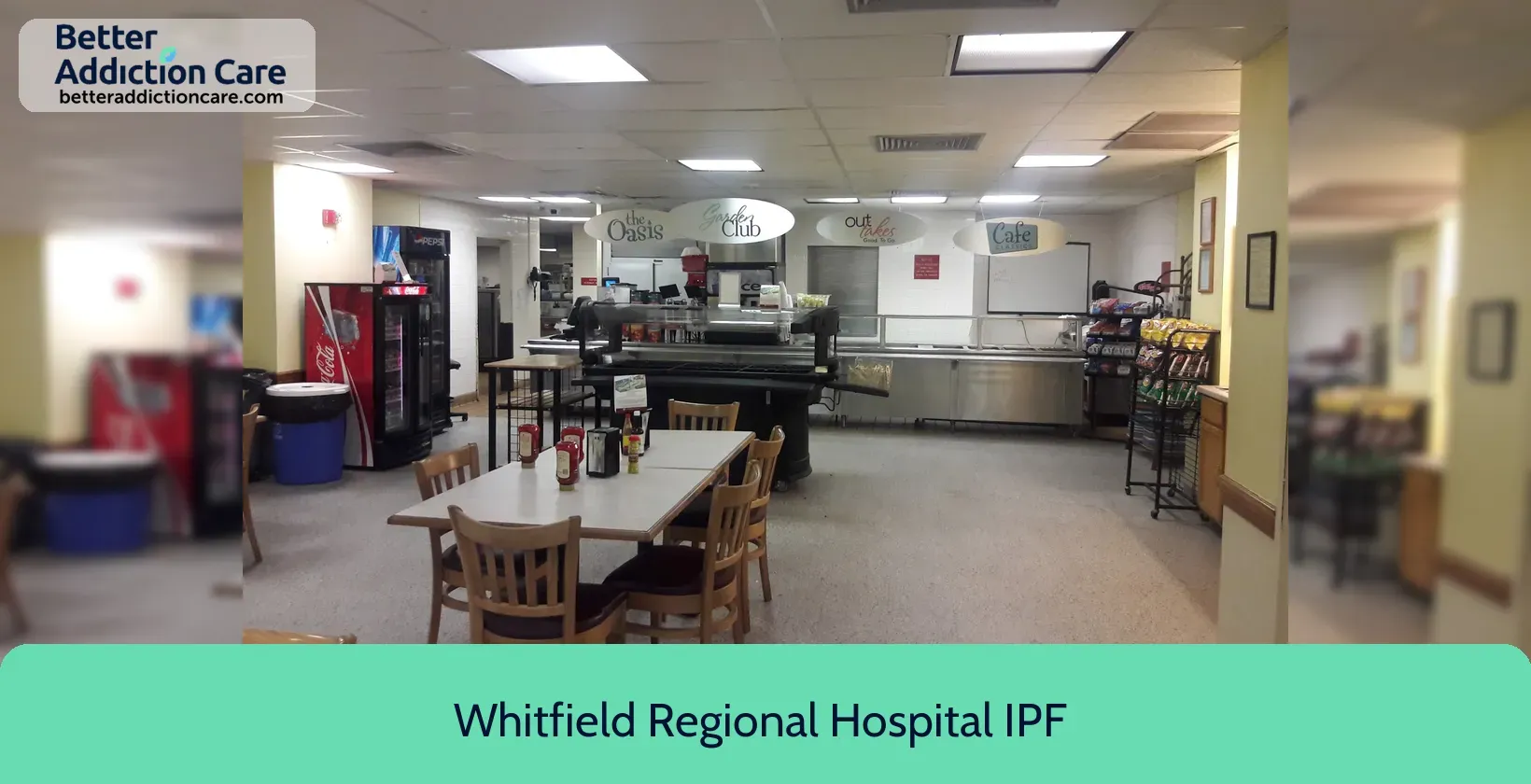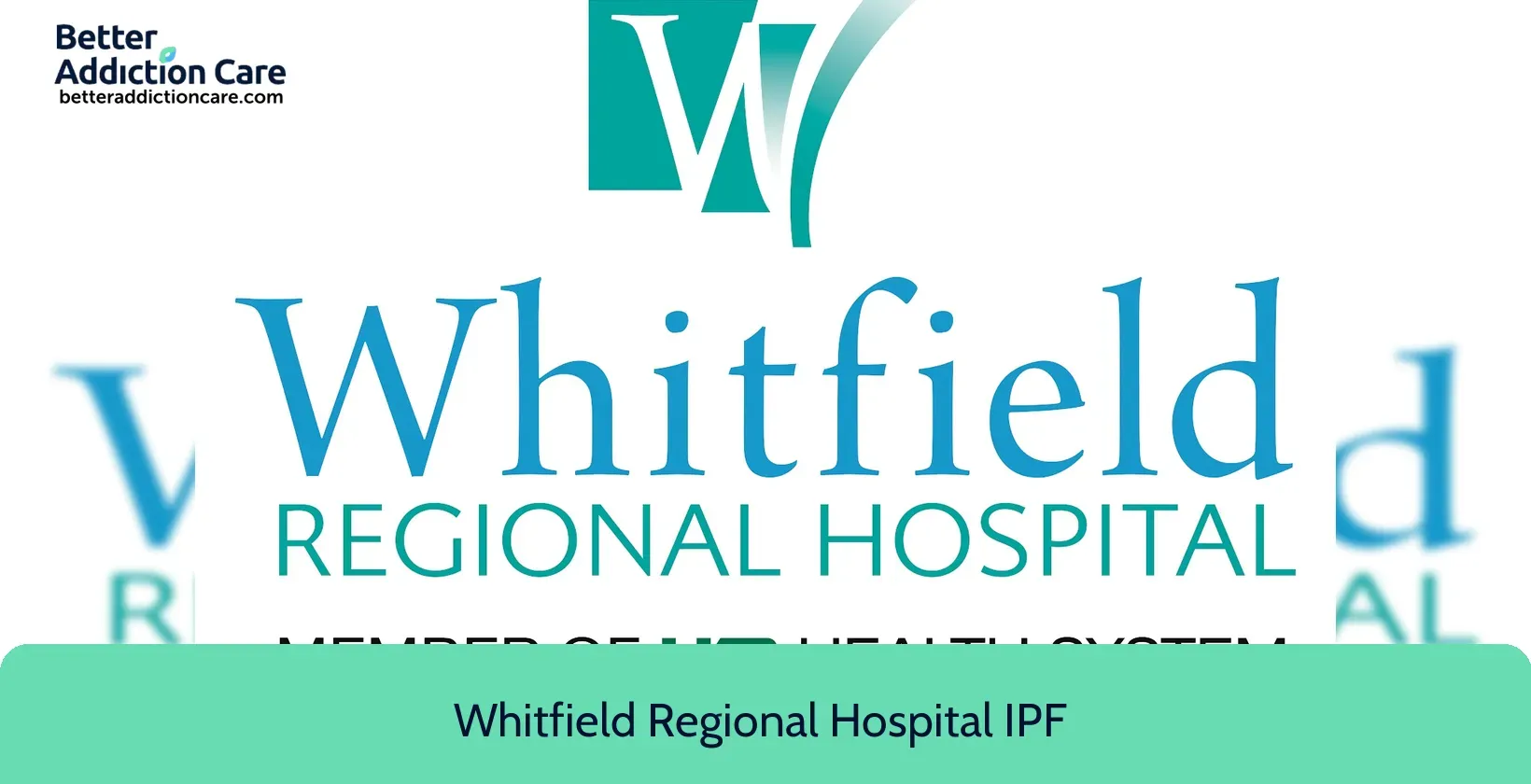Whitfield Regional Hospital IPF - Gerpsych - Adult Psych
Overview
Whitfield Regional Hospital IPF - Gerpsych - Adult Psych is a mental health treatment center for people seeking treatment near Marengo County. As part of their treatment modalities for recovery, Whitfield Regional Hospital IPF - Gerpsych - Adult Psych provides group counseling, cognitive behavioral therapy, and integrated mental and substance use disorder treatment during treatment. Whitfield Regional Hospital IPF - Gerpsych - Adult Psych is located in Demopolis, Alabama, accepting cash or self-payment for treatment.
Whitfield Regional Hospital IPF - Gerpsych - Adult Psych at a Glance
Payment Options
- Cash or self-payment
- Medicaid
- Medicare
- State-financed health insurance plan other than Medicaid
- Private health insurance
Assessments
- Screening for tobacco use
- Comprehensive mental health assessment
- Comprehensive substance use assessment
Age Groups
- Seniors or older adults
- Young adults
- Adults
- Seniors
Ancillary Services
- Intensive case management
- Case management service
- Chronic disease/illness management
- Court-ordered outpatient treatment
- Diet and exercise counseling
Highlights About Whitfield Regional Hospital IPF - Gerpsych - Adult Psych
6.68/10
With an overall rating of 6.68/10, this facility has following balanced range of services. Alcohol Rehabilitation: 8.00/10, Drug Rehab and Detox: 6.00/10, Insurance and Payments: 6.00/10, Treatment Options: 6.73/10.-
Alcohol Rehabilitation 8.00
-
Treatment Options 6.73
-
Drug Rehab and Detox 6.00
-
Insurance and Payments 6.00
Accreditations
Federally Qualified Health Center:
Federally Qualified Health Center (FQHC) accreditation is a process of evaluation and recognition by the federal government for community health centers that provide comprehensive and accessible healthcare services to underserved populations. FQHC accreditation is essential for centers to receive federal funding and to ensure that they meet standards for quality, patient-centered care.
Treatment At Whitfield Regional Hospital IPF - Gerpsych - Adult Psych
Treatment Conditions
- Mental health treatment
- Substance use treatment
- Co-occurring Disorders
Care Levels
- Hospital inpatient/24-hour hospital inpatient
- Hospital inpatient treatment
- Outpatient
Treatment Modalities
- Group counseling
- Cognitive behavioral therapy
- Integrated Mental and Substance Use Disorder treatment
- Activity therapy
- Smoking/vaping/tobacco cessation counseling
Ancillary Services
Additional Services
- Pharmacotherapies administered during treatment
- Housing services
- HIV testing
Special Programs
- Clients with co-occurring mental and substance use disorders
- Veterans
- Members of military families
- Criminal justice (other than DUI/DWI)/Forensic clients
- Clients with HIV or AIDS
Common Questions About Whitfield Regional Hospital IPF - Gerpsych - Adult Psych
Contact Information
Read our Most Recent Article About Drug Addiction
DISCLAIMER: The facility name, logo and brand are the property and registered trademarks of Whitfield Regional Hospital IPF - Gerpsych - Adult Psych, and are being used for identification and informational purposes only. Use of these names, logos and brands shall not imply endorsement. BetterAddictionCare.com is not affiliated with or sponsored by Whitfield Regional Hospital IPF - Gerpsych - Adult Psych.











